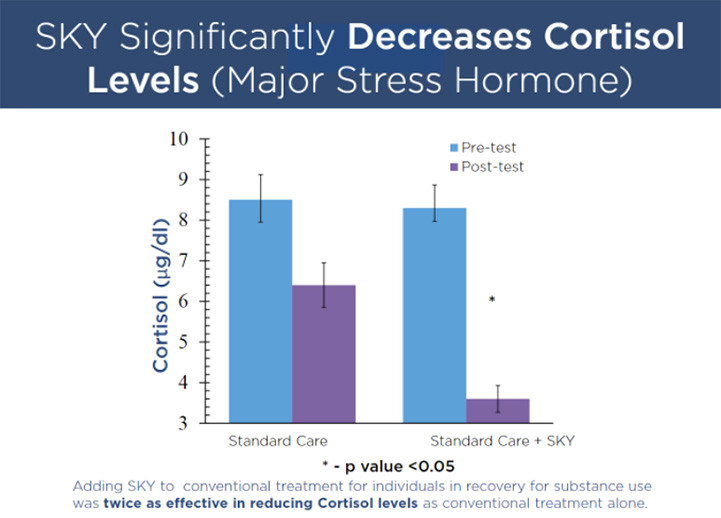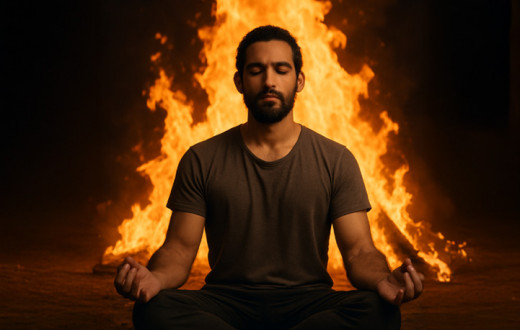Stress
Stress
Muscle tension. High blood pressure. Rapid breathing. Chest pain. Heart disease. Trouble sleeping. Muscle spasms. Digestive problems. Unbalanced emotions. Lower immunity. Feeling anxious. Tension headaches. Depression. Fatigue. Unexplained pain.
These are just a few of the many symptoms of stress we can experience in our minds and bodies. Stress that isn’t managed is the root of so much that ails us.
But is all stress bad? What is the best way to manage stress? What causes stress, and can stress be avoided altogether?
What is stress?

Most definitions of stress refer to a condition of mental or emotional tension as a result of adverse circumstances. This broad definition leaves plenty of room for interpretation and an infinite number of scenarios. To better understand stress, let’s look at three types of stress.
The good. The bad. The ugly.
Some stresses are actually good stresses. When stress urges us to take positive action, that stress is beneficial. Our body’s reaction to pain can save us from significant harm. For instance, most of us have experienced the pain of accidentally touching a hot object like a clothes iron or stove burner. The stress of that pain made us react quickly and appropriately. That acute stress also stores a memory that helps us avoid that same painful situation in the future.
Other examples of good stress are when we might run away from danger, or slam on the brakes to avoid a car accident. Good stress triggers our fight-or-flight response. Here’s a video called Science of Breath that explains more about the fight-or-flight response, and gives an introduction to a technique called SKY Breath Meditation that can help us manage stress.
The bad news is that we’re experiencing more and more stresses that trigger that fight-or-flight response in situations where there really isn’t any danger present. This is bad stress. Our physical and mental health suffers greatly when the cycle of stress and response becomes chronic stress. When we feel chronic stress, we are less able to handle even a simple stressful event.
Here’s where stress can get rather ugly. Without stress management, physical and mental health problems can increase to debilitating levels. Here’s a short list of what you can expect when long-term stress is left unchecked.
- Inability to think clearly
- Panic attacks
- Loneliness
- Excessive anger
- Intense worry and anxiety
- Unhealthy behaviors
What causes stress?

It turns out that stress is kinda personal. What causes you to feel stressed might not have the same effect on someone else. But there is also a big overlap when it comes to major stresses like an unhappy marriage, a demanding job, and any major change in your life. When smaller things cause acute stress, this is where the effect can be individualized.
With both smaller and larger stressors it is easy to feel like stress is unavoidable. If unavoidable, how do we relieve stress and also become resilient in the face of all of these stresses?
How to relieve stress safely

In managing stress, there are some things you don’t want to do. Excess caffeine and/or alcohol consumption exacerbates the effects of stress. Recreational drug use and overeating are also considered unsafe and unhealthy ways to handle stress.
In our article, How to Relieve Stress: 3 Safe Ways to Ease Your Tension, we cover these topics and more:
- What triggers stress in me?
- Reframing yourself- the key to stress management
- How breathing and meditation can help in stress relief
There are also some things you definitely want to do when it comes to stress management. We can prevent stress from having too much of an impact when we take the time to better care for ourselves.
- Eat a balanced diet
- Practice deep breathing
- Get enough sleep
- Meditate every day
Caring for our mental well-being with healthy self-care choices makes all the difference. You might even take a Tai Chi class. There are a lot of stress management techniques to choose from. Here are some of the best stress management techniques you can try.
Breathing for stress management
The link between your breath and your emotions is a two-way street. With each emotion, the breath has a specific pattern or rhythm. Also, when we use the breath in specific ways, we can affect our emotions. This makes it possible for the effects of stress to be minimized through the use of using breathing exercises.
Here’s an easy breathing exercise called humming bee breath you can use whenever you want to handle stress and anxiety in your daily life.
Guided meditation for stress management
If you feel stressed, there’s nothing easier than closing your eyes and listening to a guided meditation. Here’s one led by meditation master Gurudev Sri Sri Ravi Shankar specifically for stress relief.
The breath and meditation combo that melts stress away
Relaxation techniques are great, but when you can combine breathing and meditating into one practice, the mind and body react to stressful situations with more ease and resilience. SKY Breath Meditation is one such technique. Take a look at the graph below showing how stress hormones are greatly reduced with the practice of SKY.

A 56.6% reduction in serum cortisol in just two weeks is really quite remarkable!
Why is it important to reduce cortisol levels, other than being able to enjoy more calm? Cortisol kills brain cells and raises blood sugar, just to name two effects of stress hormones.
In fact, all of these are connected to having too much cortisol:
- Muscle tension
- High blood pressure
- Rapid breathing
- Chest pain
- Heart disease
- Trouble sleeping
- Muscle spasms
- Digestive problems
- Unbalanced emotions
- Lower immunity
- Feeling anxious
- Tension headaches
- Depression
- Fatigue
- Unexplained pain
To give you a taste of what SKY Breath Meditation can do for you, we offer a free introductory session where you can learn more about SKY, experience a relaxing guided meditation, and learn an easy breathing exercise you can do at home.
A certified SKY instructor will guide you through all of these, answer any questions, and help you take the next step.

Why Breathwork is Fast Becoming A Leading Edge for Mind-Body Wellness
By Denise Everheart | Posted on : December 22, 2020 Looking for an easy guide to the world of breathwork? You are...
LEARN BREATHING EXERCISES WITH US
SKY Breath Meditation
Helps busy people who struggle with stress and anxiety to clear their minds with a breath-based meditation that works from day one.
Sri Sri Yoga Foundation Program
Learn simple, restorative yoga postures and traditional breathing exercises, experience guided meditations and understand practical yoga philosophy that can be integrated into day to day life.
Real People, Real Voices

Election Stress: You're Not Alone; Here's How to Manage
These days, stress and anxiety are bigger issues than ever before....

How to Calm Anxiety and Start Living a Stress-Free Life Today
It is estimated that currently, almost 20% of adults have anxiety...

Teenage Anxiety: Use Our Guide to Help Your Child Find Calm
If it seems like your teen is experiencing more and more anxiety,...

Understanding Traumatic Stress and How to Start Healing Now
You don’t have to read the headlines to know that there is a...

Cortisol: The Good, The Bad, And The Ugly
Many people are experiencing high-stress levels and abnormal...

Tension Headaches: Try Our Tips So Your Head Can Feel Better Today
Topics covered Frequently Asked Questions What are some triggers...
Let's Try a Simple Breathing Exercise Now!
Take a gentle, deep breath in for a count of 4.
Now slowly breathe out for a count of 6, a little longer than your inhalation.
Repeat 3 times.
Observe how you feel. Do you notice any change?
Sure you do! Your breath is a powerful tool to ease stress and lessen feelings of anxiety.
Learn the connection between your breath and stress here.


Overcoming PTSD: A Guide to Moving Forward and Feeling Free
Topics covered What is PTSD? Types of trauma Symptoms and signsChildren and PTSD Triggers Risk factors and complications...
































